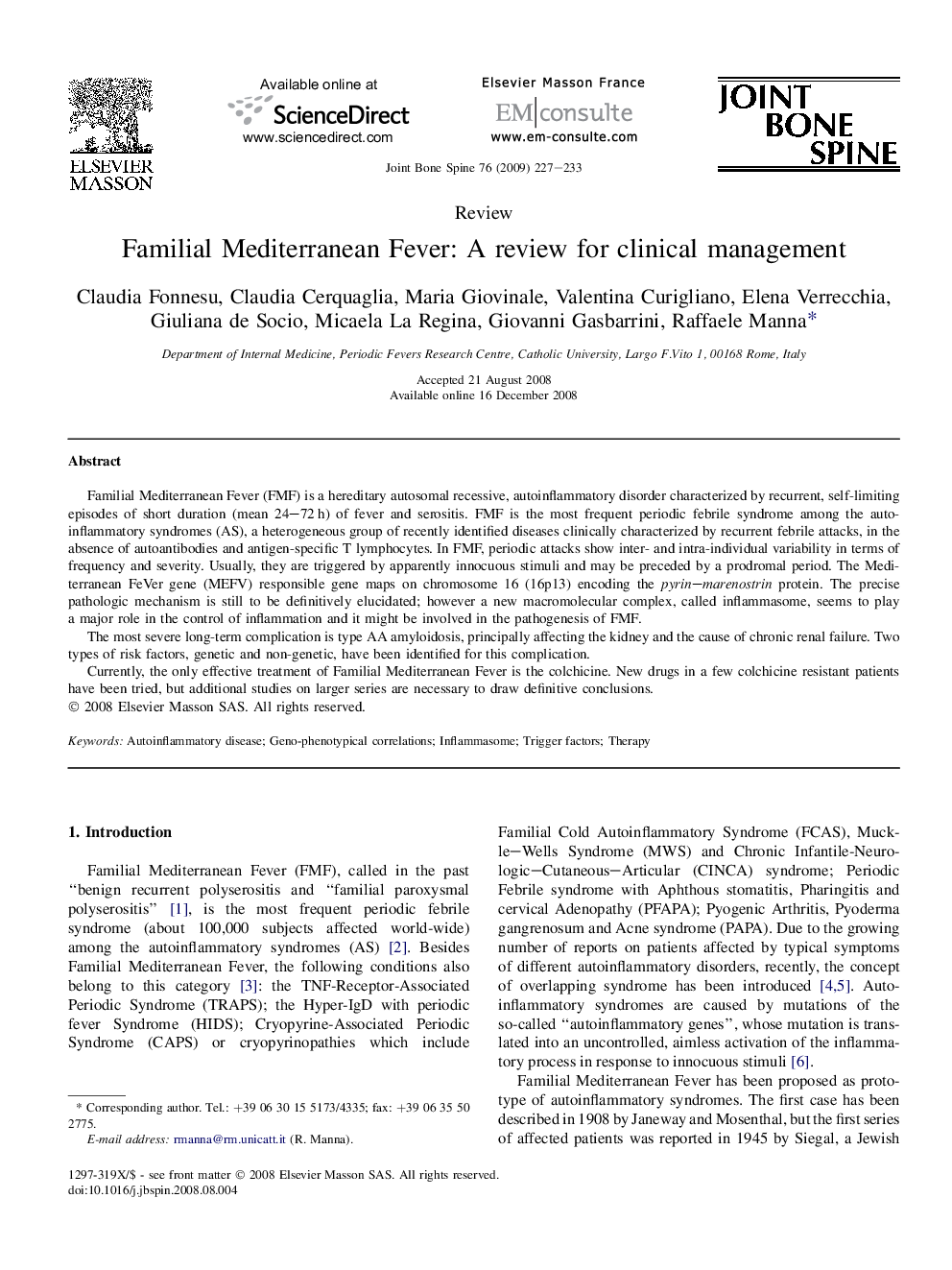| Article ID | Journal | Published Year | Pages | File Type |
|---|---|---|---|---|
| 3366585 | Joint Bone Spine | 2009 | 7 Pages |
Familial Mediterranean Fever (FMF) is a hereditary autosomal recessive, autoinflammatory disorder characterized by recurrent, self-limiting episodes of short duration (mean 24–72 h) of fever and serositis. FMF is the most frequent periodic febrile syndrome among the autoinflammatory syndromes (AS), a heterogeneous group of recently identified diseases clinically characterized by recurrent febrile attacks, in the absence of autoantibodies and antigen-specific T lymphocytes. In FMF, periodic attacks show inter- and intra-individual variability in terms of frequency and severity. Usually, they are triggered by apparently innocuous stimuli and may be preceded by a prodromal period. The Mediterranean FeVer gene (MEFV) responsible gene maps on chromosome 16 (16p13) encoding the pyrin–marenostrin protein. The precise pathologic mechanism is still to be definitively elucidated; however a new macromolecular complex, called inflammasome, seems to play a major role in the control of inflammation and it might be involved in the pathogenesis of FMF.The most severe long-term complication is type AA amyloidosis, principally affecting the kidney and the cause of chronic renal failure. Two types of risk factors, genetic and non-genetic, have been identified for this complication.Currently, the only effective treatment of Familial Mediterranean Fever is the colchicine. New drugs in a few colchicine resistant patients have been tried, but additional studies on larger series are necessary to draw definitive conclusions.
